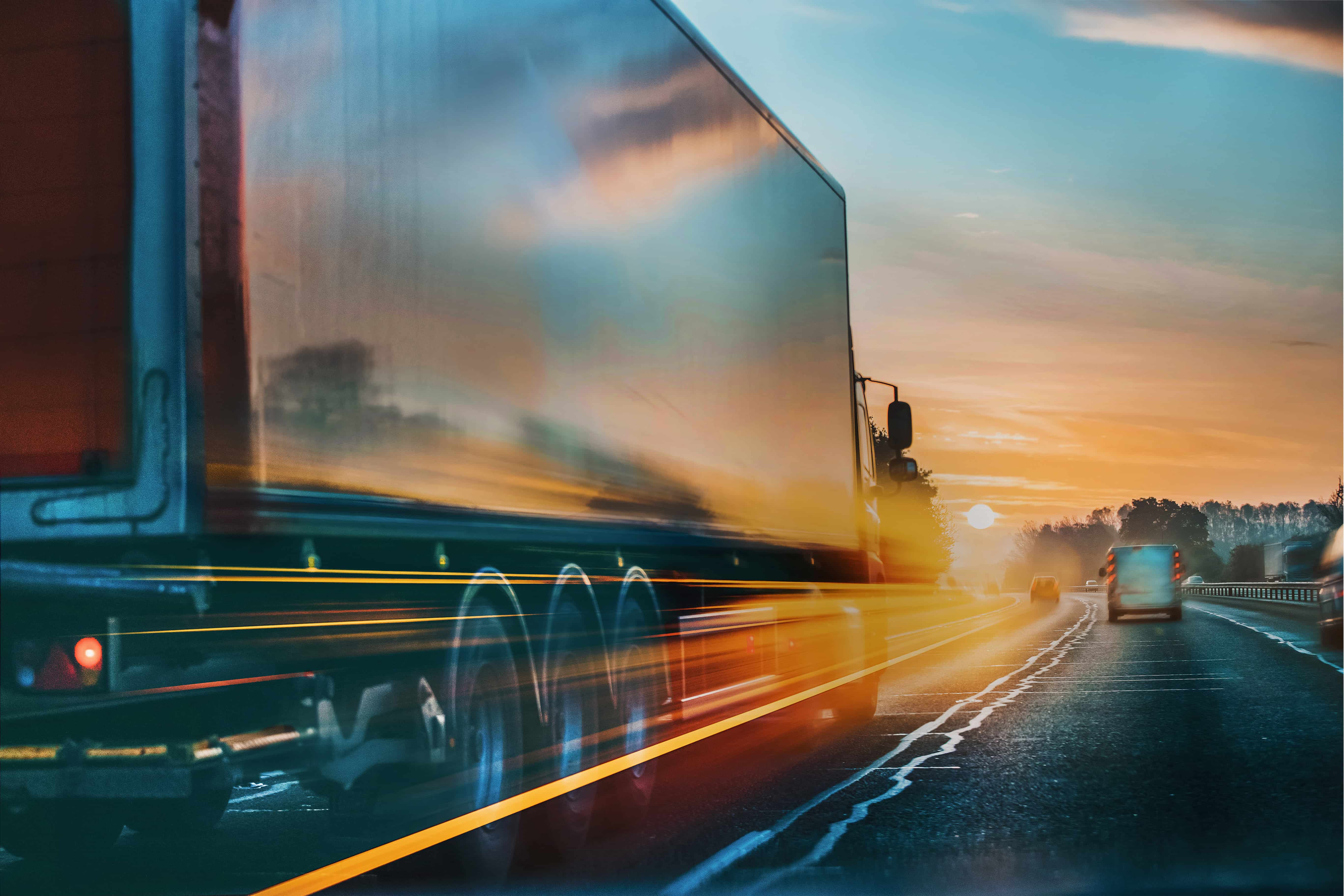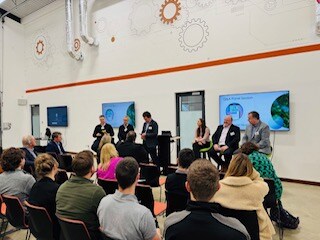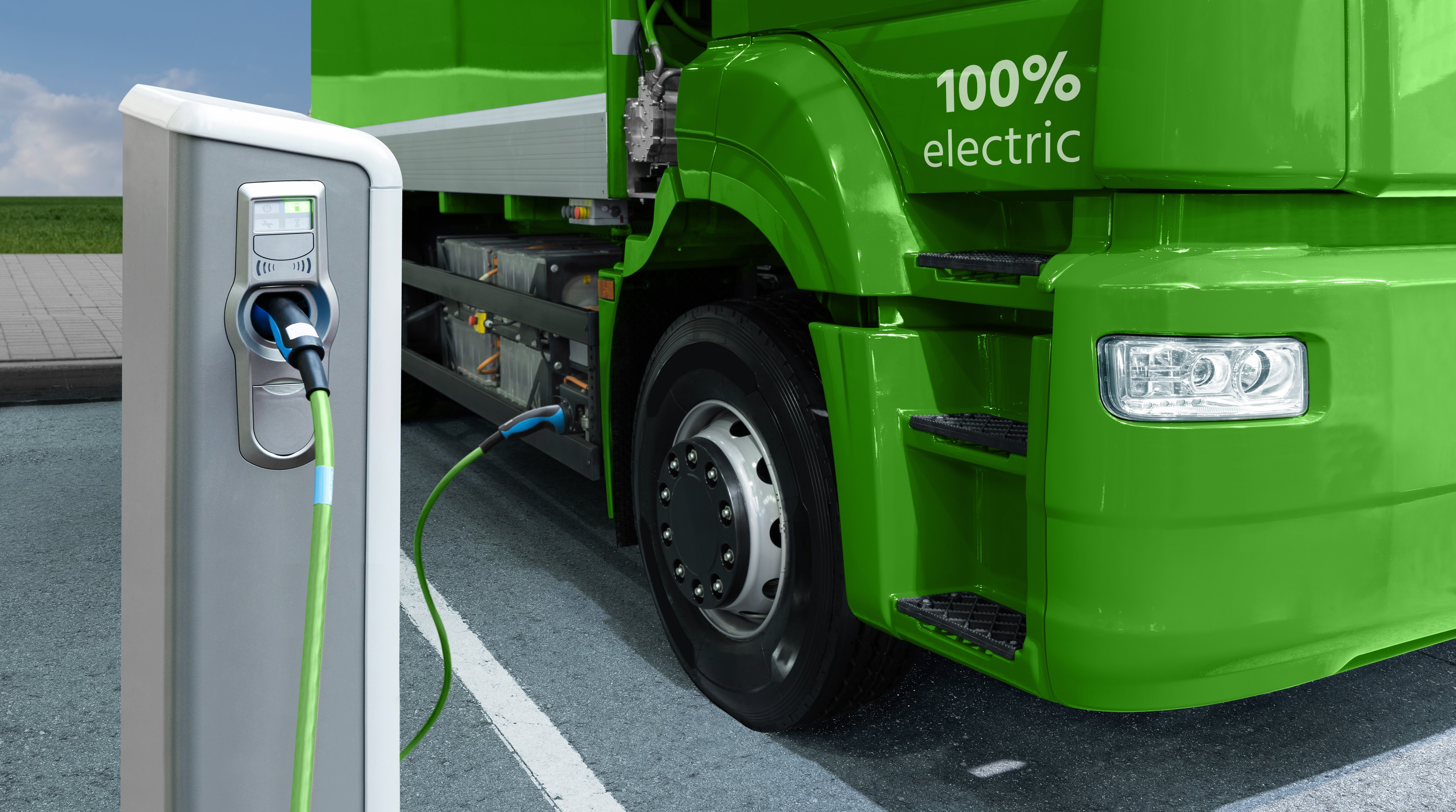We’re excited to share key insights from our inaugural decarbonising logistics event, where we hosted over 30 suppliers in partnership with Maritime Transport Ltd. The aim of the event was to discuss and find opportunities for supplier collaboration to reduce logistics carbon emissions, via road haulage optimisation and shifting movements to rail. The level of engagement in the room was fantastic and demonstrated a shared level of urgency to act on emissions now.
We were grateful for the contributions of our guest speakers John Bailey Managing Director, Intermodal at Maritime Transport Ltd and Nick Winder FCILT, Managing Director, at WIN Logistics Group, whose insights helped highlight the looming challenges as well as the opportunities to address and or mitigate them.
The context is clear: heavy goods vehicles accounted for a 20% of the UK’s transport carbon emissions in 2021. Add in a 22% increase in road traffic by 2035 and the urgency to develop and implement sustainable logistics solutions is critical. However, government plans to grow renewable energy capacity fall well short of forecasted demands and the UK’s renewable generation capacity grew a mere 3.2% in 2022.
Despite the significant investment, hydrogen and electric power for HGVs do not yet present viable solutions for scalable adoption. With the first ban on internal combustion HGVs coming into force in 2035, alternative fuels such as HVO and LNG can only be considered a tactical, but necessary, partial solution to reduce emissions in the short term.
For our members that have begun introducing Electric HGVs, key early challenges include:
- Much higher investment costs in tractor units (currently 2-3x greater than combustion units)
- Higher investment needed in charging infrastructure
- Charging and range limitations require significant mindset changes to route planning and driver and traction unit utilisation
Meanwhile, Hydrogen HGV options remain at distant prospect, with neither traction units or re-fuelling infrastructure likely in the near to mid-term.
Despite the challenges, the likely changes required to route planning for EV HGVs could lead to opportunities for shorter routes, more predictable shifts, greater flexibility on working hours and as a result potentially more accessibility to a wider pool of talent, which in turn could improve morale and underpin reliability of service.
The group aligned around the imperative that we cannot wait for a technological solution before acting, practical steps must be taken now to reduce road miles and emissions. The session converged around two focus groups road haulage optimisation and modal shift to rail:
Road Haulage Optimisation
Current inefficiencies in pallet and vehicle utilisation are contributing to unnecessary levels of movement and emissions, with HGV deliveries on average 48% empty when ‘full’ and up to 40% of pallet cube consisting of wood for picked loads. The Centre for Sustainable Road Freight predicts 34-50% of emissions can be cut out of existing fleets with better fleet utilisation, without employing any decarbonisation technologies. Tesco Ireland increased freight efficiency by combining light and heavy loads, enabling double-stacking and reducing the number of required trips.
Our own research identified multiple examples of suppliers working with customers to reduce order frequency and increase minimum order quantities (MOQs), leading to radically reduced emissions, transport and handling costs, while working within existing operating constraints for inventory, transport and service requirements.
Consequently, our road optimisation workstream will facilitate the sessions, enabling suppliers to work out how best to become more efficient and reduce emissions, as well as sharing their experiences along the journey.
Modal Shift to Rail in Partnership with Maritime
John Bailey, Maritime’s MD for Intermodal presentation sought to de-mystify the challenges around rail. By sharing their future vision and their plans for ‘groupage’ trains, having recently won the Tesco rail service, John brought into focus the significant opportunity for rail to help their customers reduce road miles and emissions. Rail currently contributes only 1.4% of domestic transport emissions. With rail freight emitting far lower carbon levels than road, Maritime were able to shift 20% of their containers to rail, leading to a 49% reduction in their footprint for those movements.
As a result, suppliers were keen to explore the opportunity to shift movements to rail, and our next workgroup meeting, on 23rd November, will provide a platform for suppliers to share data, concerns and learnings as the group works to make it happen. For those with smaller volumes, the opportunity to participate as one of a number of suppliers is a gamechanger, making rail a viable and accessible solution, as well as leading to increased efficiency.
Net Zero Investment
There is significant opportunity to mitigate the level of investment needed in logistics decarbonisation through increased efficiency, thereby softening the financial blow of the future requirements of net zero, which will never be as cost-effective as the current situation. For those suppliers who have already been able to optimise load and vehicle fill and minimise case-picked pallets, the road to net zero can only be achieved by investment in alternative modes of transport and working even harder to reduce empty running.
Working Smarter, Together
Collaboration across supply chain partners is essential to achieve logistics optimisation, individual operators can only get so far on their own. Nick Winder highlighted the many perceived barriers to collaboration, with concerns over data sharing, visibility, customer infiltration, service protection and operational complexity, interfering with the level of trust needed by all parties to work end-to-end. Two members shared their collaborative partnership successes to demonstrate the art of the possible and highlighted that there are clear opportunities for multiple parties to both improve efficiency and reduce carbon emissions.
The Decarbonising Logistics Workgroup provides a space to share data and build strong and trusting relationships to exploit the collaborative opportunities of rail and road optimisation.




